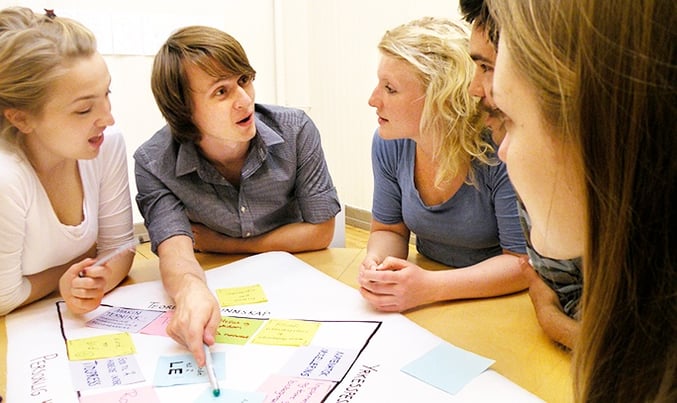Computational thinking is a problem solving process that takes inspiration from coding and computer science to enhance the way we analyze problems and design solutions. It’s been getting a lot of buzz lately at the university level, but the underlying concepts can be integrated into any classroom. Try some of these methods out in your own lesson plans to help your students think computationally:

Decomposition - Take a big problem and break it down into small parts
You might already:
- Have students turn in large project in several parts over the course of days/weeks.
You can expand by:
- Visualizing the decomposition at the beginning of the project using a Prezi.
- Allowing students to collaborate on the best way to break up the project.

Abstraction - Filter out unnecessary details that distract from the goal
You might already:
- Ask students to research a topic online and filter out irrelevant results.
You can expand by:
- Having students annotate their research materials by explaining which sections are relevant and which are irrelevant.

Iterative Thinking - Make several prototypes/drafts that build on each other
You might already:
- Have students turn in a rough draft before they submit their assignments.
You can expand by:
- Splitting students into teams, have each of them improve on a draft of the paper/project, then choose the best elements of each new draft to craft the final product.

Debugging - Develop plans for dealing with possible flaws in your solution
You might already:
- Talk about the real-world applications of the science and math concepts they are learning in class.
You can expand by:
- Giving the students exercises where they have to account for real-world conditions like wind.
- Giving students a problem that has been answered incorrectly and ask them to find the mistake.
These are all fast changes you can make in your current lessons plans to encourage computational thinking and problem solving. They all utilize tools you already have in the classroom, and can be implemented with almost any subject!
If you want lesson plans with computational thinking at the heart, that teach English and Mathematics concepts as well as coding and computer science, check out EngageK12. There are lessons for all subjects and grade levels, and they all teach programming along with the core topics! The best part? You don’t need any programming experience to start teaching them. Go online to http://engagek12.robotlab.com/ and see how you can enhance your students’ learning with EngageK12.
